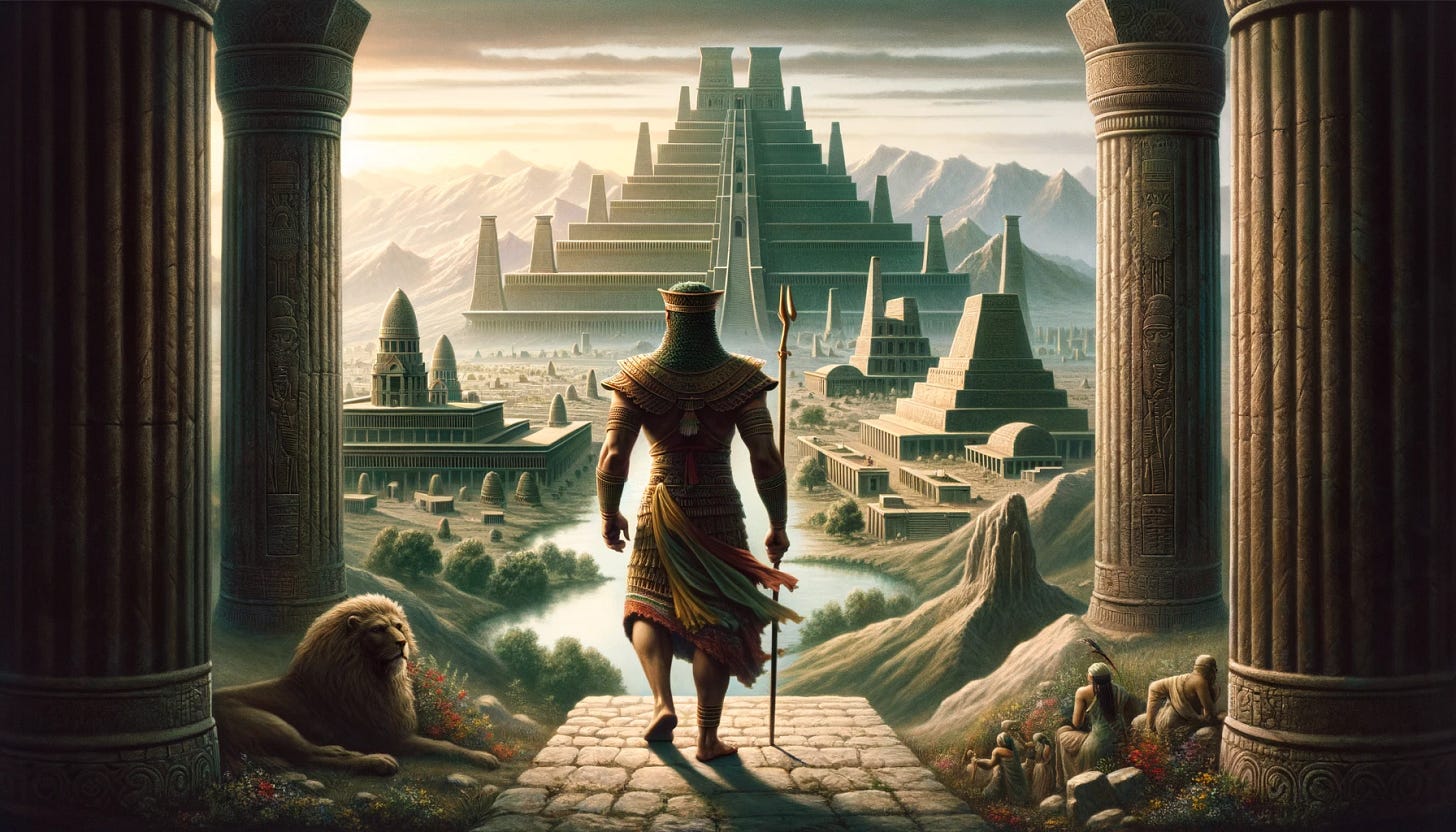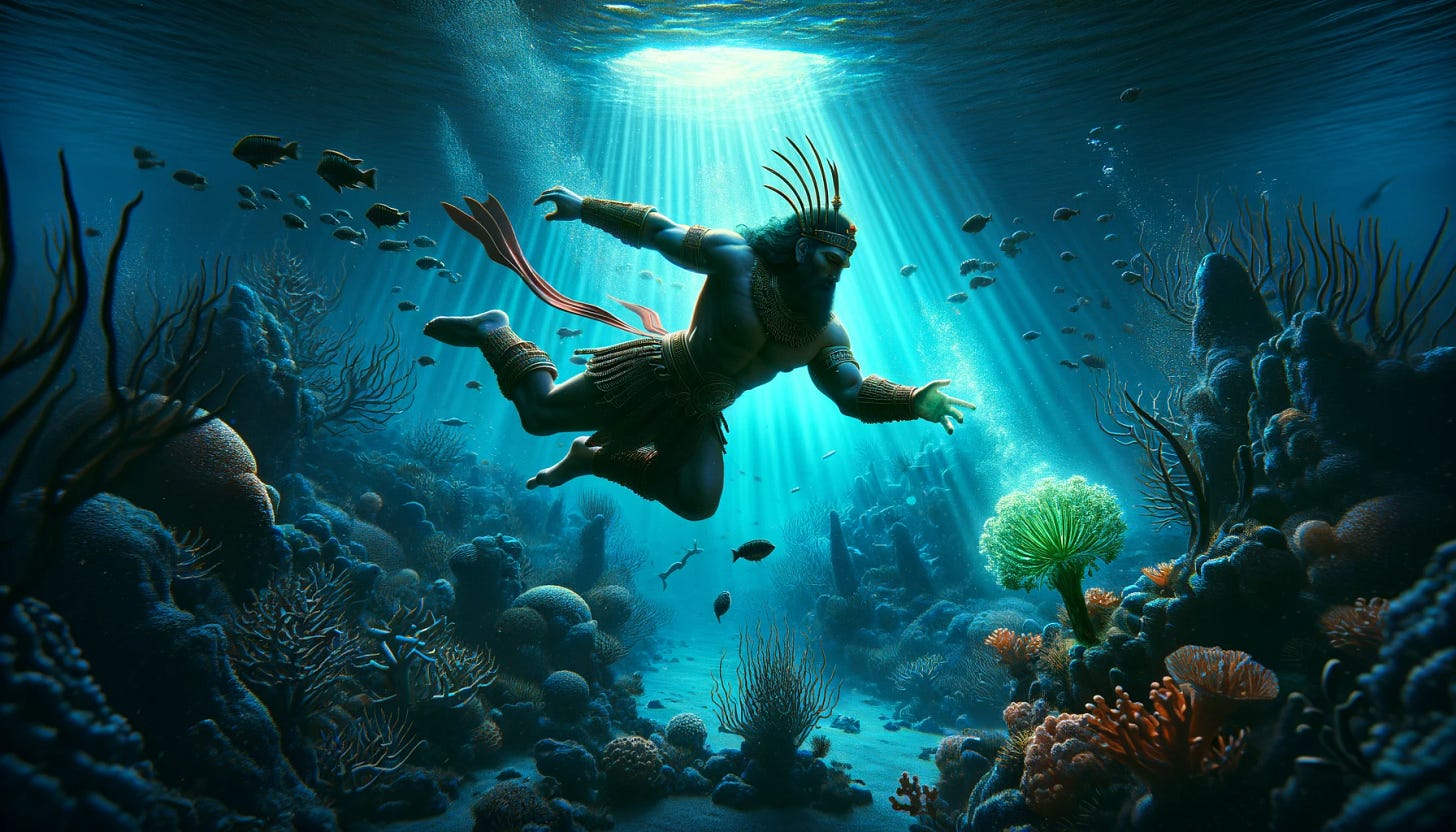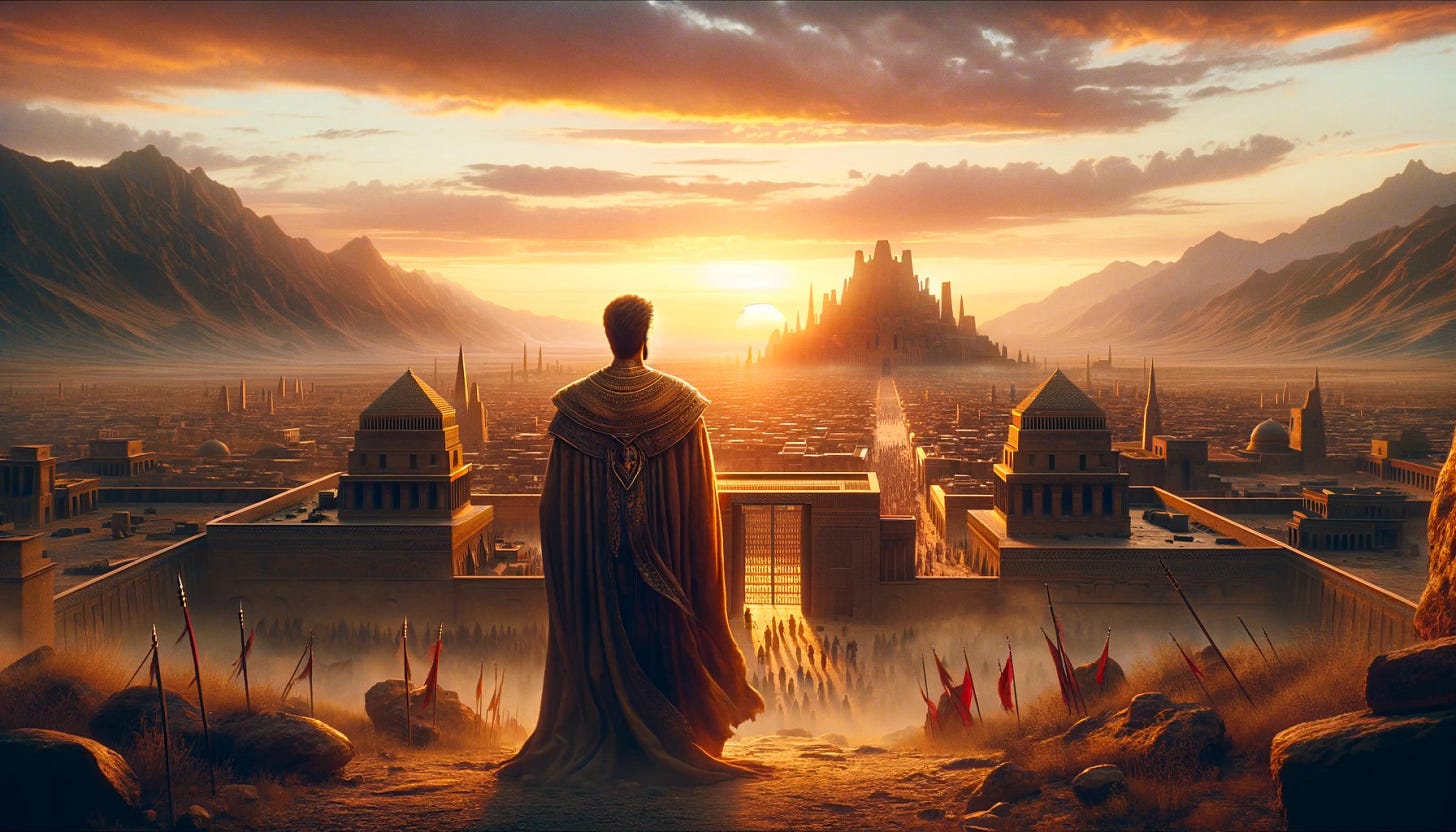The transformation of a king
A lesson in humility from the world's oldest poem
The king of Uruk was restless.
The fascist dictator loved sleeping with women on their wedding night to beat their new husbands, leaving the townsfolk in shame. Given that no man could match his physical prowess, everyone had to accept this twisted fate.
That wasn’t the only trick up Gilgamesh’s sleeve. After some time, the gods grew tired of this reckless leader—one who would likely have fit right into today’s manosphere: a blustery, swagging bull who never cared to understand others. All he desired was to feed his own appetite, which is exactly what he did.
Enter Enkidu, the untamed, untethered hulk fashioned by divine hands to put Gilgamesh into place.
Gilgamesh won their first battle, though not without consequence: impressed by the half-man’s strength, the two became best friends.
Adventures began. They set out to slay Humbaba the Terrible and tear down the sacred cedar tree. Both goals were accomplished, which also didn’t sit well with the gods. Hoping to tame one man, now they had two wild animals to contend with.
Even still, the goddess Ishtar couldn’t resist the mighty king’s fame. He promptly shut down her advances. She sent the Bull of Heaven as revenge. The two men killed him as well.
This didn’t sit well with the divine council. Enkidu was slain. Gilgamesh, destroyed.
For the first time in his life, the king of Uruk was humbled.
Distraught and rudderless, Gilgamesh discovered that a plant of immortality grew at the ocean’s bottom a half-world away. A pilgrimage commenced.
Humility couldn’t stop the Top G brofluencer from achieving endless life by stealing the world’s most potent supplement.
Gilgamesh dove to the ocean deep and snagged the plant. There was only one condition: he must remain awake on his seven-day trek home.
And so of course he napped.
A fish jumped onto his boat and clenched the plant in its jaw. Somewhere an eternal carp continues zipping through the waves. Gilgamesh was defeated once more.
He returned to Uruk humbled, again. But something had changed: he treated his people with respect and care. The ruthless dictator transformed into a benevolent leader.
Sure, he lost his nootropic deal. His days of broing out on podcasts was over.
Yet, progress. Women no longer feared him. Nor men. Gilgamesh became just another human, albeit one who learned from mistakes to become kinder, gentler, humane. The status quo suited him.
Sure, he wouldn’t last a day on Twitter. But Gilgamesh was revered in his community until, at least, he passed on as well.
Here we are, 38 centuries since the first recovered copy of this poem was published, learning the same lessons.
Hopefully, educating ourselves in the transformative quality of humility and care.
The quest for power and longevity has always been with us, at least since the beginning of recorded history.
And so, apparently, has compassion.
The perfect seed to plant during this passage into yet another turning of the dial.







what a great retelling of the Epic of Gllgamesh! I still have my original paperback copy somewhere and my fave episode of Star Trek: Next Generation is the one where Picard retells the Epic to his alien companion who speaks only in metaphor. Sokath, his eyes uncovered! Darmok and Jalad on the ocean...
Today on the anniversary of January 6th coup attempt, because of this platform’s irresponsible pro-nazi policy I’m unsubscribing from all Substack newsletters and telling all newsletters this same message. And advising all clients going forward about the many alternatives like Ghost Pro, etc.